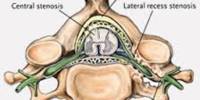Blood pressure drugs have an unsuspected effect on the brain, according to researchers. Researchers at the University of Minnesota Medical School discovered that blood pressure drugs had an unexpected effect on the brain, according to a study published in Science.
The researchers observed that medications used to treat high blood pressure surprisingly increase the effect of opioids produced naturally by the brain. This can fine-tune the function of a specific brain circuit and counteract the addictive characteristics of opioids used to relieve pain, such as fentanyl.
Midlife hypertension is a known risk factor for dementia, which affects 850,000 people in the United Kingdom. The brain, like the heart, relies on good blood flow to function correctly and having high blood pressure can jeopardize this supply.
“Our findings suggest a new strategy to boost opioid signaling in the brain in a protective and beneficial way, with a very low risk of dependence or addiction,” said Patrick Rothwell, Ph.D., an assistant professor of neuroscience at the University of Minnesota Medical School and member of the Medical Discovery Team on Addiction.
The study focused on the angiotensin-converting enzyme (ACE), which has long been recognized to regulate blood pressure. However, nothing is known about the role of ACE in the brain. Rothwell urges more research on ACE inhibitors, a safe class of medications used to manage blood pressure, based on the study findings. ACE inhibitors have the potential to be modified to treat neurological diseases.
Our findings suggest a new strategy to boost opioid signaling in the brain in a protective and beneficial way, with a very low risk of dependence or addiction. The study focused on angiotensin-converting enzyme (ACE), which has long been recognized to regulate blood pressure.
Patrick Rothwell
The Minnesota Discovery, Research, and Innovation Economy (MnDRIVE) initiative and the National Institute on Drug Abuse supported this study. Brian Trieu, an MD/Ph.D. candidate in the Rothwell lab, oversaw the experiment.
For a long time, doctors dismissed forgetfulness and mental disorientation as a normal aspect of aging. However, scientists now know that memory loss as you get older is not unavoidable. The brain can, in fact, create new brain cells and remodel their connections throughout life.
Most individuals are aware of at least some of the factors that might impair memory, such as alcohol and drug misuse, heavy cigarette smoking, brain injuries, stroke, sleep deprivation, severe stress, vitamin B12 deficiency, and disorders such as Alzheimer’s disease and depression.

Rothwell and University researchers are developing new ACE inhibitors in partnership with Dr. Swati More from the College of Pharmacy’s Center for Drug Design in order to maximize their effect on brain function. The Office of Academic Clinical Affairs is funding this ongoing work with a Faculty Research Development Grant.
This new study tried to examine if blood pressure-lowering medications that could cross the blood-brain barrier — a key component in the brain – improved memory and cognitive skills, but it did not specifically look at dementia. They discovered that those who used barrier-crossing medications had a minor but not insignificant gain in memory, but those who used drugs that could not cross the barrier had higher attention abilities.
Millions of people in the United Kingdom have prescribed blood pressure drugs to help them maintain their cardiovascular health. Doctors will prescribe the best medication for their patients based on their specific circumstances. Anyone who is concerned about the medications they are taking should consult their doctor.
According to research, 40 percent of dementia cases are linked to characteristics we may be able to control, and the best evidence suggests that we may take care of our brain by maintaining a healthy weight, staying physically and socially active, not smoking, and drinking within the prescribed limits. Simultaneously, we must continue to invest in research that will bring us closer to a world free of the anxiety, heartache, and devastation caused by dementia.
Even though they had a higher degree of vascular risk, older persons receiving blood pressure-lowering drugs that penetrate the blood-brain barrier had improved memory recall for up to 3 years of follow-up compared to those taking medicines that do not cross the blood-brain barrier. Adults taking antihypertensive drugs that did not cross the blood-brain barrier, on the other hand, had greater attention for up to three years of follow-up.
















